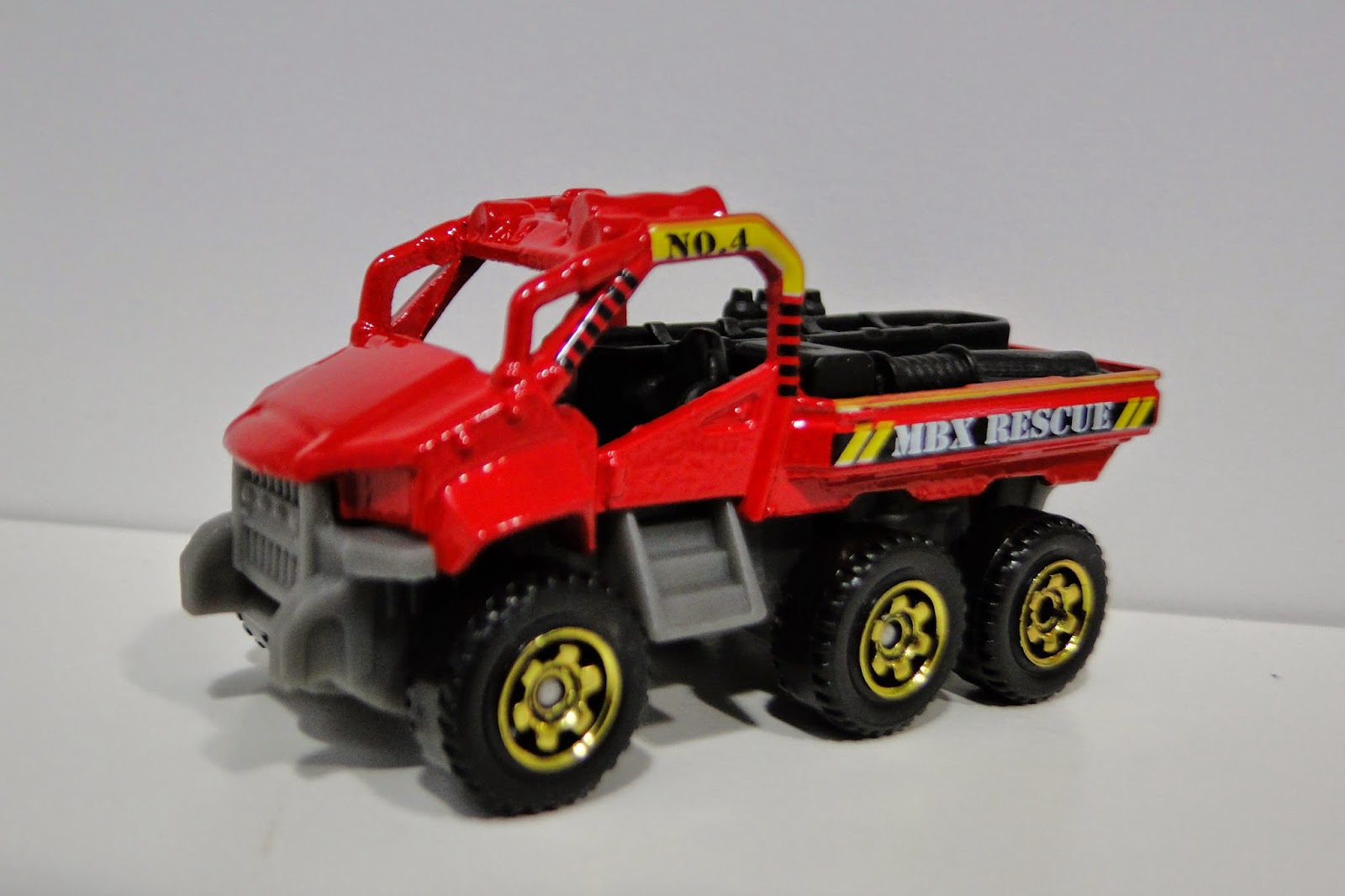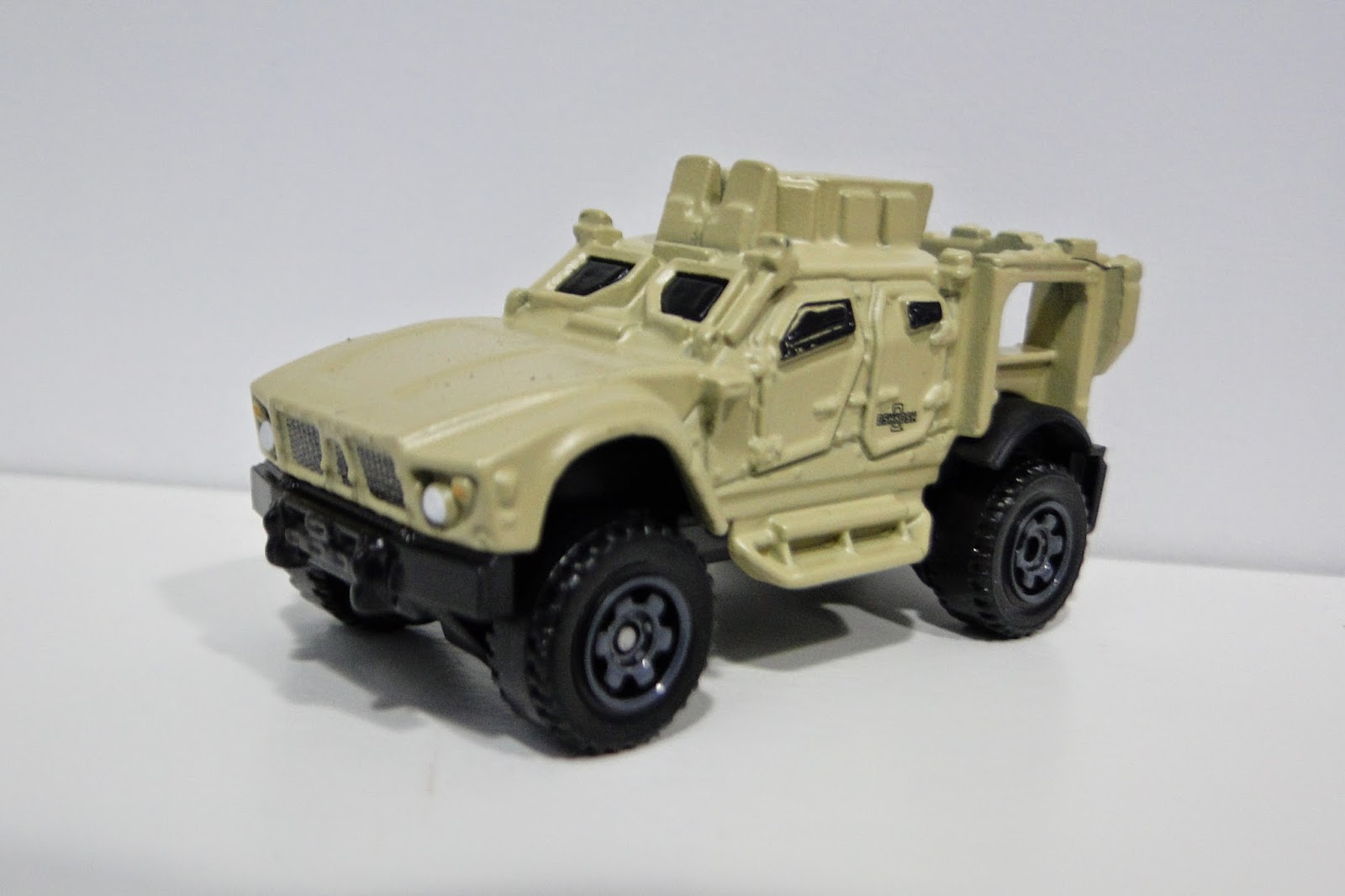Ambassador Report 40
INTRODUCTION
Members of the Matchbox team have been in Asia recently and I am
particularly grateful for their efforts to provide images and answers
for this week’s report. All images are provided by kind permission of
Mattel.
MATCHBOX ANSWERS YOUR QUESTIONS
- Do the MBX researchers/designers/corporates buy other 3 INCH brands such
as MAJORETTE,WELLY to see how they put together/design their castings? I
ask this because its really amazing/baffling for many that such brands
can be licenced, diecast body cars and trucks with opening parts at
lower or similar price to Mbx produced in the same countries as
Matchbox.
The Matchbox team does keep tabs on what our competitors are making and
vice versa. The retail price is dictated by many factors around the
world and can indeed be baffling to some.
2. That Porsche Boxster is drool-worthy. But of course, it must
be a 9/10-pack exclusive, which means I cannot afford it. At least I can
admire it online. I do love how Matchbox is digging into archives (with
this, the Z8, and Frogster) and giving these old models a fresh-look; I
would love to see this happening in the mainline. This looks to be one
of the best Boxsters done! The Team really does have a talent, and
sometimes corporate lets them show it.
Thanks for the compliment. We appreciate it.
3. The Snow Ripper looks nice, but why are the handlebars so
low? They looked smashed down into the front. Based on the upright
seating position, surely this was a mistake? Whatever the case, it looks
really wrong. A rider would have to lean into those handlebars, but the
seat is too high and straight-up! Would you please comment?
Sorry that you don’t think our design makes sense. It is after all a
toy and a creation from the team’s fertile imagination. Since it isn’t
made for real people and real human engineering is not required we did
take some artistic license. The Snow Ripper is fantasy model so how you
interact with it is up to your imagination.
4. Snow Ripper: I like the concept of a snow mobile. I like the colors
and graphics. But can you realistically drive that thing - with your
hands and not your feet. And can you realistically bring a friend along?
I'll have to wait and see the actual model to be able to answer that
question.
See the answer number 4 to solve the mystery. Cheers.
5. So far the only good stuff in my opinion from Matchbox has been the
Black DBS Volante, red Seagrave fire engine, and Exotic 5 pack. The
Panamera deserves an honorable mention. My only complaint: the fixed
roof cars have no side windows - a common Matchbox trait. I hate cars
with no side windows. It's just my thing. I like sealed, closed cars. I
don't want dust and other particles getting into the car. It becomes
unreachable, unless you're a custom maker and you can take it apart.
Last year's terrific BMW 1M was an exception, and I made the same
exception for the TVR Tuscan S(in 2005 I think) and this year's Exotic 5
pack. Solely because Matchbox usually has much better detailing than
Hot Wheels and the headlight/taillight tampos are very precisely done.
But I need side windows!
We generally prefer not to have side windows. At
1:64 scale sealed windows often obscure the interior details due to the
thickness of the window glass. We prefer to look inside. Sometimes
there are surprises inside that would go unnoticed if the windows were
rolled up.
7. Could the Land Rover Defender be retooled to have the entire grille
and headlight assembly to be part of the base or interior?
Yes this is possible.
NEW RELEASES
There are four new 2014 tools to show this week. The new Rapids Rescue vehicle has a removable raft on top.
Next we have the Seed Shaker which is a tracked tractor.
Next we have a new Sky Buster Plane called the Sky Sentry.
This new item is for our 2014 Creature Catcher line. This is one of 4
vehicles, two of which will be aircraft based. It will come with a
Dino which can be captured with the retractable claws.
A Little More History from 1979 and beyond
The Mercedes 450SEL was available in a medium or deep metallic blue with
opening doors, a silver plated base and a light or dark beige interior.
Interestingly, another Mercedes 450SEL was planned to be released as a
taxi at No. 54 at the same time. This would obviously save on
manufacturing costs as only a TAXI sign would need to be added to the
roof. However, the idea was dropped, possibly because the 450SEL was a
luxury vehicle which would not have usually been found in the guise of a
taxi. Nevertheless, two years later in 1981 the idea was reconsidered
and this time the saloon was replaced by a taxi in German livery with a
red plastic “Taxi” sign protruding from the roof, with authentic light
beige paintwork. The light blue and yellow versions shown here are
colour trial models.

The pocket catalogue shows a pre-production model, with yellow interior
and amber windows, which to some was superior in appearance to the
actual released model. Cross hatching on the base of several models was
introduced to allow the metal to run more freely during the casting
process. A very small run of the first issue of this Mercedes escaped
the factory with smooth base plates without the “hatching” of all later
issues. It is sometimes considered to be a pre-production model, though a
tiny handful was found boxed in stores.

This was a very attractive looking piece, further enhanced as many came
with silver grey painted bases. Despite this colour change, it was
decided for the USA to delete the model from the range and replace it
after just three years with the Peterbilt Milk Tanker! It survived
elsewhere and in 1983 was converted yet again, this time into a Mercedes
Police Car with German lettering! A horn (in chrome and later black)
and roof lights replaced the Taxi sign and the body was now in white
with green panels and “Polizei” tampo print. Again the base could be
plated or be silver painted and the windows were changed to blue,
although this did not really complement the beige interior, which should
have perhaps been re-coloured to white. The shade of green tampo varies
considerably from a pale green to bright mid green, dark green to a
very dark green, so dark on some models in fact that it appears almost
black! A small run with the chrome horn was released with no tampo print
whatsoever - an unmarked police car perhaps! Even rarer than this
however are examples which appeared with the tampo missing only from the
side panels. Such examples are very hard to come by. The Mercedes was
deleted in 1985, shortly after the last examples had been made in Macau.

However, it was yet another model that was used in Bulgaria and produced
in a huge variety of colours – some of which were very attractive. You
may love or hate the Bulgarian issues, but there is no denying that some
colour schemes would not have looked out of place in the miniature
range.
Another USA themed model released in 1979 (in addition to the Lincoln at
#28) was the #74 Mercury Cougar Villager. An attractive pre-production
model appears in the USA trade catalogue in pale yellow with a beige
interior, but in fact the #74 was instead released in a pale green with a
pale yellow interior, a plated base and a green plastic drop-down hatch
at the rear. This white version is a pre-production.
In this metallic green colour it bore more than a passing resemblance to
the Mercury Commuter, which had been deleted just five years earlier
and was positioned at almost the same number: 73! The Cougar model could
also be found with a much darker yellow/orange interior and also the
body shade could be a much darker shade of green. A further difference
was the replacement of the dog looking over the tailgate to a drop-down
plastic tailgate in a similar colour to the body.
In 1981 the model was revamped in an attractive deep blue shade with
matching hatch. It also came with the light or dark yellow interiors,
but there are alas no other major variations on this model. Sadly it
suffered the same fate as the Lincoln and was deleted in 1982 after just
three years in the range, replaced by the Fiat Abarth in the UK and the
Orange Peel (Dodge Dragster) in the USA.
It was produced in Bulgaria for a very short time and in comparatively
few colours as shown. I have no idea why it was so short-lived.


The #39 Rolls Royce Silver Shadow at first glance appeared to have been
brought out of retirement, so similar was it to the regular wheel #24
from 1966 which had remained in the range until 1972, having been
converted to Superfast in 1970. It originally reappeared in 1977 in gold
as a Japanese release and then in 1979 in MP-1 packs with dot dash
wheels replacing the 5 spoke variety. The #39 also has the dot dash
wheel, though it is in point of fact it is a different casting, with
opening doors instead of an opening boot, a chrome plastic instead of a
metal grille and a different base plate, but the body itself appears
virtually unaltered. In the standard catalogue it is shown in a
beautiful rich reddish-bronze shade with a cream interior, but in the
USA trade catalogue it appears as it was released, in silver with a red
interior. In 1981 it was re-coloured in metallic red. The interior was
now cream, so it was quite similar to the pre-production model in
bronze, though possibly not as stunning! This red model can also be
found with a light yellow or brown interior, though these are quite hard
to track down. The two silver models shown have pre-production front
grilles.

This colour was then withdrawn in favour of a champagne gold shade in
1982, now with a white interior. It can be found also in a standard gold
shade but this is rare. The base can be found sprayed silver on about
20% of the gold variants. Even rarer are those models with amber
windows, but the rarest gold model to be found is one with narrow 5 arch
wheels, which must have been an extremely short run as it is barely
seen. In 1984 the Rolls Royce was re-coloured in an attractive dark red
shade known by collectors as plum! The interior was white, the base
plated or painted silver or occasionally in black, which is quite a
desirable piece. The mould was then transferred to Macau where the last
run of these models were made with pearly silver bases, until the
model’s deletion in 1985.

The contract with Bulgaria to supply die-casting machines was also
agreed with Hungary. The agreement lasted less than a year and though
some moulds had been passed on from Bulgaria, several new models were
produced for the first time. One of these was the MB39 Rolls Royce
Silver Cloud. For some reason only a few models were made and they were
never easy to find. There has always been a premium with these Rolls
Royces. The metallic green version to me is particularly appealing.
Again I am indebted to Graham Tomlinson for his help in the compilation
of this article. I am happy to look in depth at any Matchbox miniature
from the 20th century, though my knowledge of this century is very thin and examples of prototypes are unavailable.
Nigel Cooper 26th May 2014

















































